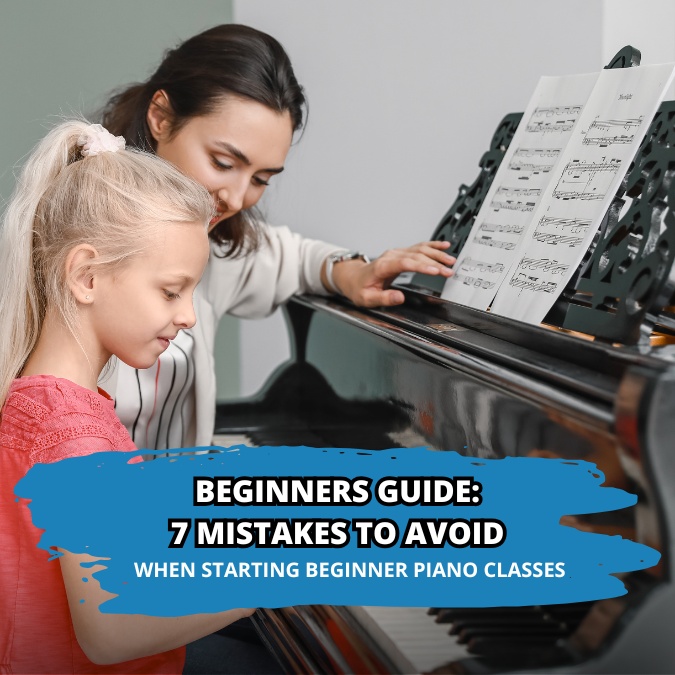7 Mistakes to Avoid When Starting Beginner Piano Classes

Mistake #1: Not Having a Practice Routine
Why Consistency is Key
Consistency is essential when learning any new skill, and piano is no exception. Beginner piano classes often provide foundational knowledge, but progress only comes with regular practice. Without a routine, skills can stagnate, and it’s easy to lose momentum. Daily or consistent practice, even in small increments, helps solidify what you learn in class and improves muscle memory, which is critical when playing the piano.
How to Create an Effective Routine
The key to creating an effective routine is setting manageable, realistic goals. Start by carving out 20-30 minutes each day for practice. Make sure to break up your time between warm-ups, technique exercises, and song practice. Using tools like a practice journal or apps can help track your progress and ensure you’re sticking to your routine. Adjust your practice based on feedback from your beginner piano classes and avoid cramming long sessions on some days while skipping others entirely. Consistency beats long, sporadic sessions every time.
Mistake #2: Skipping Music Theory
Understanding the Role of Music Theory
Many beginners believe they can skip music theory and focus solely on playing. This is a mistake, as music theory provides the essential framework for understanding how music works. Without it, learning new songs can feel mechanical and disconnected. Music theory, when taught in beginner piano classes, helps you understand why certain notes and chords go together and how to read sheet music effectively. Grasping these fundamentals early will make the learning process smoother.
How Theory Helps in Long-Term Progress
Learning music theory builds a strong foundation that makes tackling more advanced pieces easier as you progress. For example, understanding scales and chords helps with improvisation, composition, and sight-reading. Beginner piano classes often introduce theory in small doses, but practicing it on your own will reinforce these concepts. Over time, you’ll find that knowing theory can speed up your learning process by allowing you to see patterns in music, making it easier to pick up new pieces.
Mistake #3: Focusing Only on Speed, Not Technique
The Problem with Rushing
Many beginner piano students are eager to play fast, thinking it demonstrates skill. However, speed without proper technique can lead to poor habits that are hard to break later. Rushing through lessons and practice without developing solid finger positions and hand coordination can make playing more complex pieces much harder down the road. Beginner piano classes often emphasize technique first because accuracy is more important than speed at the start.
How to Develop Proper Technique Early On
Developing good technique from the beginning is crucial to becoming a well-rounded pianist. Focus on slow, deliberate movements and pay attention to your finger placement and posture. Beginner piano classes will often give you specific exercises designed to improve your hand strength and agility. Practice scales and arpeggios at a slower tempo to ensure your hands are working efficiently. With time, speed will come naturally once you’ve mastered the basics of technique.
Mistake #4: Neglecting to Play Music You Enjoy
Staying Engaged and Motivated
One of the most common reasons beginners quit piano is because they lose interest. If you only practice pieces assigned by your instructor and don’t incorporate music you love, it can feel more like a chore than a fun hobby. While beginner piano classes are designed to teach foundational skills, it’s important to balance these lessons with music that excites you. This will help you stay motivated and remind you why you started learning in the first place.
Balancing Learning with Fun
To avoid burnout, set aside time to learn songs that you actually enjoy playing. Even if they’re not part of the curriculum, this can keep you excited about your progress. Try to find simplified versions of your favorite songs that align with your current skill level. Beginner piano classes often focus on classical or traditional pieces, but branching out into contemporary or familiar songs can be a breath of fresh air. The more you enjoy what you’re playing, the more likely you are to stick with your lessons.
Mistake #5: Not Seeking Feedback or Guidance
The Value of a Good Teacher
While self-teaching can be tempting, the guidance of a good piano teacher is invaluable. A skilled instructor can point out mistakes that you might not notice, helping you correct them before they become ingrained. Beginner piano classes offer structured learning, but the feedback from a teacher ensures that you’re progressing at the right pace. An instructor can also tailor lessons to your personal goals and correct any technical flaws you might develop along the way.
How to Benefit from Feedback
Receiving feedback is essential to improving your piano skills. It’s important to approach feedback with an open mind and use it as a tool for growth. In beginner piano classes, teachers can help you break bad habits early on and suggest alternative ways to approach challenging pieces. Actively seek feedback during lessons, and don’t be afraid to ask questions if you don’t understand something. Constructive criticism is your ally in becoming a better pianist over time.
Mistake #6: Ignoring Proper Posture and Hand Position
Why Posture Matters in Piano Playing
Good posture is fundamental when learning the piano, yet it’s often overlooked by beginners. Sitting incorrectly or slouching at the piano can cause discomfort, strain, and even injury over time. Beginner piano classes often emphasize proper posture because it allows for better control and more fluid movement across the keys. Sitting too close or too far from the piano, or having your wrists at the wrong angle, can make it harder to play smoothly and develop bad habits early on.
How to Maintain Proper Posture and Hand Position
To maintain correct posture, sit at a height where your arms are parallel to the floor, and your wrists are slightly elevated, not resting on the keyboard. Your back should be straight, and your feet should be flat on the floor or a footrest if necessary. Additionally, hand position is crucial—your fingers should be naturally curved, with your knuckles elevated slightly. Beginner piano classes will provide guidance on how to adjust your posture and hand placement, but it’s essential to practice maintaining this setup at home. Good posture will not only help prevent injury but also improve your playing technique and stamina over time.
Mistake #7: Using the Wrong Equipment
Choosing the Right Piano or Keyboard
Selecting the right instrument is critical for beginner piano students. A common mistake is using a keyboard that doesn’t replicate the feel of an acoustic piano. Beginner piano classes might not require a full grand piano, but it’s essential to have a keyboard with weighted keys that simulate the resistance of an acoustic piano. This will help develop finger strength and proper technique, preparing you for more advanced playing later.
Setting Up the Right Learning Environment
Your learning environment also plays a big role in how effective your practice sessions are. Make sure your piano or keyboard is set up in a quiet, comfortable space free from distractions. Investing in a proper bench, a stand for your sheet music, and headphones if you’re using a digital piano can also enhance your learning experience. Beginner piano classes will teach you many things, but having the right equipment and environment at home will ensure you’re set up for success outside of class.
Avoiding Mistakes and Building a Strong Foundation
Recap of Key Points
By avoiding these seven common mistakes—skipping practice routines, ignoring music theory, prioritizing speed over technique, neglecting enjoyable music, not seeking feedback, ignoring proper posture, and using the wrong equipment—you can set yourself up for success in your beginner piano journey. Each of these aspects plays a critical role in building a solid foundation for long-term growth as a pianist. Beginner piano classes are just the start, and by staying mindful of these potential pitfalls, you’ll make steady, enjoyable progress.
FAQ
Q: How often should I practice if I’m taking beginner piano classes?
A: It’s recommended to practice at least 20-30 minutes a day, ideally five to six days a week. Consistency is key to building muscle memory and reinforcing what you learn in class.
Q: Is music theory necessary for beginner piano students?
A: Yes, understanding basic music theory is crucial for learning how to read music and understand the structure of songs. It provides the foundation for long-term success in piano playing.
Q: Can I learn piano without a teacher or beginner piano classes?
A: While self-teaching is possible with online resources, having a teacher can accelerate your learning by offering personalized feedback and guidance. Beginner piano classes provide structure and ensure you’re learning correct techniques.
Q: How long will it take to see progress in beginner piano classes?
A: With consistent practice, most beginners see noticeable progress within a few months. The key is to stick with a regular practice routine and follow the guidance from your instructor.
Q: What type of piano should I use when starting beginner piano classes?
A: For beginners, a digital piano or keyboard with weighted keys is a great option if you don’t have access to an acoustic piano. Weighted keys simulate the feel of an acoustic piano and help build finger strength. Ensure it has at least 61 keys, though a full 88-key keyboard is ideal for long-term use as you progress.


